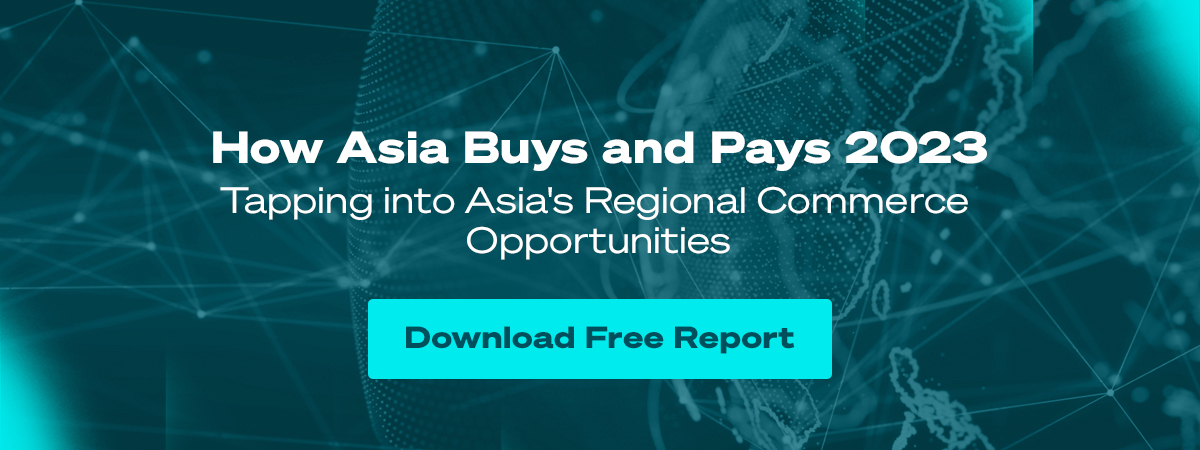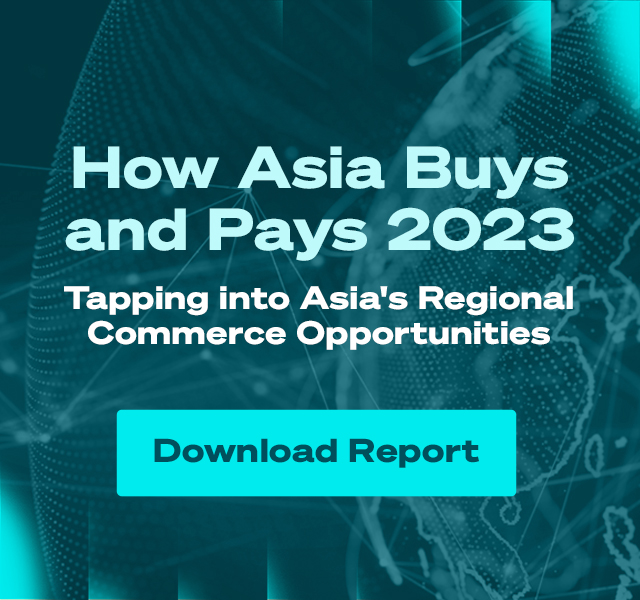
Payments Powerhouses: Ramping Up Financial Inclusion in Indonesia with Abdul Farid Hamid
In this instalment of Payments Powerhouses, we discuss lessons from Hamid’s stint as an entrepreneur, his efforts to champion financial literacy and raise the bar for financial inclusion, and how Mastercard stays relevant amidst Indonesia’s big push toward digital payments.


Abdul Farid Hamid is the Vice President and Head of Market Development at Mastercard Indonesia.
He is responsible for driving growth in core and services revenues, as well as developing Mastercard’s relationships with companies in the digital economy and striking mutually beneficial partnership agreements.
Prior to Mastercard, Hamid was the Regional Director of Pakistan and Afghanistan at Western Union. He has also founded his own e-commerce startup and is a seasoned entrepreneur and management consultant across the fintech, payments, consumer banking & e-commerce sectors.


Welcome to Payments Powerhouses, Hamid. Could you tell us about your background and how it led to your current role?
Hamid: I have always been passionate about the payments industry. I started my career at IBM as a management trainee in the e-commerce division and expanded my roles as head of cards at United Bank Limited in Pakistan and Emirates NBD Bank in the UAE.
My position as head of cards was very focused on consumers, giving me a very strong understanding of technology and how payments are made. During this time, we were still living in a magnetic stripe world that started shifting towards the chip. That was a revolution I witnessed first-hand.
Furthermore, working in different markets, especially in the UAE, exposed me to a diverse platform of consumers where I could get insights into consumer interests and behaviours.
My next career move was joining Western Union as country head for Pakistan and Afghanistan. Western Union is a global leader in real-time payments and cross-border payments. It was a new experience moving from card rails to real-time payments, dealing with account-to-account and cash-to-account transfers.
This role gave me an understanding of diaspora because you’re talking about the population in one country sending money to the population in another country. I needed to learn the needs of customers making business payments, remittances or any other form of fund transfers.
I spent six years at Western Union before I left to fulfil my passion for founding a startup. I started my own e-commerce company called Indus Riviera based out of Canada, serving customers in the US. My partners and I ran five online stores, serving different types of customer bases. Our flagship store was Riviera Shades, a new brand of sunglasses. We were involved in running the website, the checkout and payment experience, and even product design, manufacturing and digital marketing. This stint taught me many things about how payments are made, the requirements and needs of SMEs and who’s who in the e-commerce space.
When the COVID pandemic happened, I decided to sell off my business to my partner, and I moved to my current role at Mastercard.
What motivated you to venture and start your own company? What key takeaways have you taken out of that experience as an entrepreneur?
You need to have courage, be very committed and determined to strike out as an entrepreneur.
My biggest learning about creating a startup is managing your burnout rate, especially if you have limited resources and funds and you don't know when you will break even. Learning how to manage your resources and staying focused on your prime products is key.
You also need to be well-versed with all aspects of business because when starting a company, you deal with a wide gamut of issues ranging from HR to legal and government regulations.
It was a very good learning experience, and I’m glad I did that. We reached the break-even point, which I consider a success. After almost four years, though, I was missing the corporate life and decided to move on from being an entrepreneur.
As the VP and head of market development at Mastercard Indonesia, what does your role entail?
My current role is very exciting. Mastercard was previously known mainly as a card company but has now become a very diversified company, serving all types of payment solutions and products. I am responsible for increasing the footprint of payments acceptance in Indonesia and creating more touchpoints for customers.
In bringing about more convenient payment methods, we have to enable new use cases that are not currently in the market and new payment flows. On top of existing card rails, we manage e-commerce, QR, bank-to-bank and remittance rails, with some up and coming rails in the works. My objective is to be relevant in all payment flows, old or new.
I also look after the growth of the core services and revenue - our main bread and butter - while developing working relationships with a growing sector of Indonesia-based companies in the digital space.
Most importantly, my role stays aligned with the Government of Indonesia and its agenda of a cashless economy. I am working towards bringing even more micro-enterprises on board for that purpose.
Indonesia is making a big push toward digital payments. How is Mastercard helping to achieve that?
There are multiple things we are doing. We believe that there is a financial literacy gap in the general public, and there are many who want to set up their own businesses. Mastercard is rolling out different types of educational programs to tackle this challenge.
We also try to fund terminals or devices that can serve all types of offline payments acceptance. In doing so, we are reaching customers who utilise Mastercard’s technology in low-cost online acceptance solutions. And thirdly, cyber security plays a crucial role in our business - we have a vast range of products that we try to fit with these small businesses so that they can kick start their companies with peace of mind. We are taking a very broad approach as we move forward.
According to a recent IDC report, card usage in Indonesia remains high. In time, do you think mobile wallets will become the more dominant payment method?
I believe that due to the Covid-19 pandemic, consumers prefer less physical contact while making payments. We have grown accustomed to online grocery shopping and making digital bank transactions. Currently, I think there are at least 220 million cards active or at least issued in the market. This figure serves almost the entire population in Indonesia.
I would say that card usage will increase as a popular form of payment mainly because people enjoy the convenience of using cards. At the same time, we are making a lot of effort to give card incentives and solutions to merchants and customers without requiring them to be tech-savvy.
The Bank of Indonesia also rolled out a QRIS initiative that has accelerated the digitisation of Indonesia’s economy. Almost 15 million merchants are enrolled in the QRIS program, which allows payment transactions to be facilitated by one QR code, namely QRIS, even when using different payment instruments. This simplifies the payments process and is the main reason why more people are adopting digital wallets.
There are multiple types of QR payment rails. For example, when making a payment at a store or online, you can scan a QR code with your phone to make a direct transfer to the account associated with the QR code. There are now dynamic QR codes which allow merchants to produce not just a regular QR but a specific payment-related QR, where the amount is part of one code.
You also have customer-generated codes, where instead of the merchant, the customer presents the code, and the merchant can scan it. Even a QR printout can suffice - you don't need a terminal or any device that will cost the merchant.
I think this will fly well in Indonesia for all the good reasons - it is cheaper, more convenient to use, and the government backs it.
You mentioned quite a few initiatives Mastercard is driving. Which excites you the most?
We have been working on education-based initiatives for the banks, merchants and individuals. We recently rolled out a Digital First program, where banks and their partners can understand which types of digital payment methods are trending. Not long ago, we introduced a program targeting small and micro-enterprises.
We believe that financial inclusion is a key growth driver of the economy. We are developing a micro-lending program where we give small loans to small businesses to improve their services - for example, developing a website or incorporating other needs, as well as providing them with devices.
We have also approached fintechs to support us in securing those micro-merchants on their platform. This is where my heart is, because I think it will not only serve our interests as Mastercard, but it will also bring inclusive growth for smaller micro-merchants which will lead to very fast economic growth as we recover from the pandemic.
Mastercard has launched a biometric payment method pilot in Brazil, where you can pay with your fingerprint or face recognition. Can we expect to see anything similar here in Asia soon?
This is the future of things to come as we move from passwords to biometric verifications across the world. It also depends on the country’s technology infrastructure - we’re developing the idea in Asia, but I don't think Indonesia will be our next target. We’re looking forward to launching it in the Middle East, and I hope we can bring it to Indonesia soon as I believe this will make things easy and convenient for customers.
Finally, we appreciate you taking time out of your busy schedule to talk with us. Apart from work, do you have any personal passion projects?
My passions are rooted in my current job, especially where I spend a lot of time on microlending and financial acceptance programs. Other than that, I’m focused on discovering more about Indonesia since I’ve just relocated here.
. . .
Payments Powerhouses is a monthly editorial series interviewing the movers and shakers of the payments and wider fintech industry in Southeast Asia and beyond. If you’d like to be featured on Payments Powerhouses, reach out to us here.

